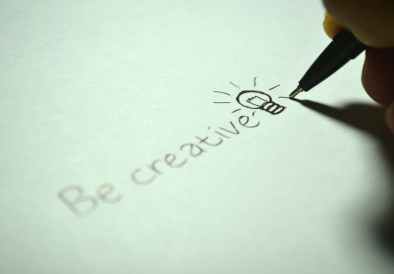Morning everybody! I hope you’ve all had a good week.
I am feeling very positive after a week of novel editing, in which I’ve managed to dedicate a lot of time to my story despite the fact I have been super busy in other areas.
As I have been working on my novel writing and adding depth to the story and characters today’s post seemed appropriate. It follows on nicely from a previous post in which I discuss physical traits in characters. Only today, the focus is on positive and negative traits.
No Character is Perfect
Sorry, but they’re not! Just like in day to day life, nobody is perfect, and if your characters don’t have flaws then they won’t be realistic. Think about the people you love most in your life, the good, honest people. They will still have negative traits. Negative traits aren’t necessarily bad traits, in that they make that person any less decent. But negative traits can include being indecisive, being lazy, being a terrible cook… So you’ll see this isn’t about saying everyone has to have a bit of evil inside them. Simply that everybody has flaws, and all characters should have flaws too.

Even Villains have Positive Traits
As with above, this isn’t to say that all villains have a shred of good in them. Some simply don’t. Yet as with negative traits not meaning a person is bad, positive traits don’t mean a person is good. For example, your antagonist could be extremely clever. I think most people would agree with me that intelligence is a positive trait. It is how people choose to use their intelligence that determines whether they have good or bad intentions, but the main point is it is a positive trait. Your antagonist(s) need to be as well rounded and realistic as your protagonist(s).

‘Positive’ and ‘Negative’ can be Subjective
I have given some examples of positive and negative traits already in this post, but one could say that opinions on these traits are subjective. What I mean is, some people may consider them negative traits, others positive. More examples; I am desperately shy. Some people may see this a positive trait; shy people are often good listeners, they can be quiet or cute. Personally, I see my shyness as a negative trait as it often holds me back from making positive choices in my life. I listed indecisiveness up there in my list of negative traits, but really your character’s indecisiveness might stop them from making a huge mistake. Basically, you, your readers and your characters may have different ideas of what’s positive and what’s negative.

Traits Should be Relevant
You could make a list of positive and negative traits and apply them to your characters. But there needs to be a certain level of relevance to the story. Describing your character as clumsy or extroverted or unhygienic or optimistic is pointless if it does little to develop the story, and their attitudes and decisions with in it. Of course, you can use the traits to create a better visual image of the character; showing not telling of course! But try not to just reel of traits that don’t really matter. Or, worst of all, describing a character as having certain traits but then never have them demonstrate those traits in the story. It’ll just seem too random and out of place.

Is your novel full of complex characters? Do you think much about their traits, about what makes them who they are? Comment below or contact me anytime to discuss.
Until then,
Keep writing,
M
x


Thanks for writing this! I am starting to write a novel and this really helped me flesh out my characters 🙂
LikeLiked by 1 person
Thank you Poppy! I’m really glad it has helped. Do keep us updated on your novel writing journey ❤
LikeLiked by 1 person
I will 🙂 This blog is really keeping me motivated to keep writing 😀
LikeLiked by 1 person
That’s so kind ❤ and makes me really happy! 😀 Drop by anytime!
LikeLiked by 1 person
Nice article for sure.
In my own story I am developing, there is a character that is mage with talent for fire spells, but she is quite easily immersed in it to the point she can be dangerous even to her own. A warrior that is straightforwards, so much it tends to cause him trouble with several high-ranked officers due to his undiplomatic approach and more so towards those he has a grudge from the past. And the warrior’s son who has a lot of expectations put on him to the point it troubles him and tends to be brooding or overthinking things to the point of feeling guilty for minor issues as he struggles to find his place. I eventually have one of the bad guy’s prominent minions show his better side at some point.
LikeLiked by 1 person
Oh wow! You have some really well thought out characters there. I love how you’ve weighed up their pros and cons to create interesting, complex personalities. Best of lcuk with your writing!
LikeLike
Thank you. There are of course more (I believe it’s around 50 named characters) and I try my best to make them interesting (or at least the main ones) but only time will tell if I succeeded.
LikeLiked by 1 person
It sounds like you are on the right track!
LikeLiked by 1 person
Reblogged this on Author Don Massenzio and commented:
Check out this helpful post from the Uninspired Writers blog on creating characters with positive and negative traits
LikeLiked by 1 person
Reblogged this on Claire Plaisted – Indie Author and commented:
Developing good and bad characters….after all nobody is perfect.
LikeLiked by 1 person
Love this! After a trip to ancestral Ireland, I am trying to characterise real people and that is proving difficult at times! Sometimes it can be hard to ‘layer out’ a character when you already have an opinion on them so the idea of ‘Even villains have positive traits’ is wonderful!
LikeLiked by 1 person
Thank you so much! 🙂 I really hope your character creating goes well ❤
LikeLike
Thank you! ☺️
LikeLiked by 1 person
Great post as usual, M, and a good reminder to add more depth to the antagonist. I’m all for making the protagonist flawed, but often forget that great antagonists’ need to not just ‘be evil’. Thanks!
LikeLiked by 1 person
❤ Thank you, my lovely!
LikeLiked by 1 person
I feel like there’s a distinction needed. Some traits may be “skilled” vs “unskilled” in contrast with morally “positive” or “negative” traits.
I do agree with you that some may perceive a trait as a weakness or a strength, but I would think some (like compassion or greed) could be considered consistently “positive” or “negative”.
I definitely agree that traits should be relevant, and think this might be another situation where “planning backwards” makes sense.
One might randomly realize that the protagonist is currently riding high on some serious successes, and need some setbacks to keep things interesting, so now the protagonist gains a new weakness or shortcoming, which proves a severe hindrance in achieving the next step on their journey.
I also think it’s nice if every relationship features at least one shared strength/weakness, and one contrasting one.
One of my favorite examples is Holmes and Watson. Both have a similar moral alignment, and a propensity for “what is right”, but one is so intelligent (within his field) that it isolates him, while the other is more of an “every-man”, with a broader scope of knowledge that doesn’t quite reach the same depth.
LikeLiked by 1 person
Love this comment, thanks so much for reading and reflecting on so many of posts. Your insight is awesome and every relevant.
LikeLiked by 1 person
You’re welcome. Thank you for sharing your thoughts.
LikeLiked by 1 person